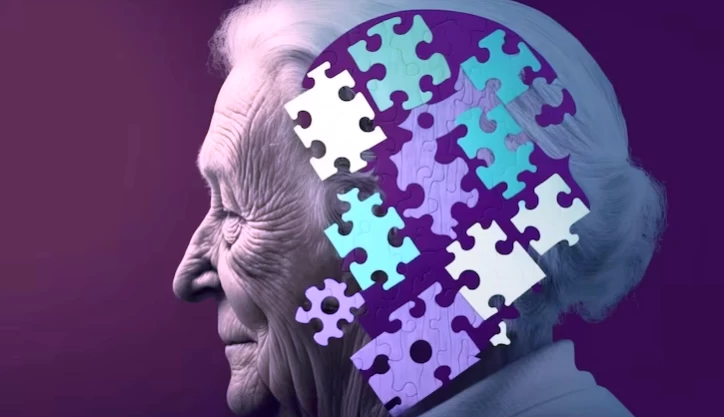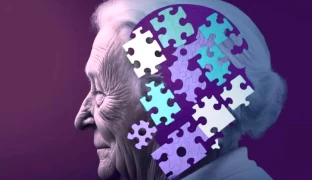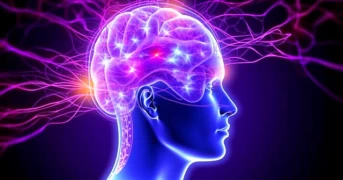
Alzheimer's Disease: Losing Time as the Brain Deteriorates
- Alzheimer's Disease: Losing Time as the Brain Deteriorates
- Definition of Alzheimer's Disease
- Symptoms of Alzheimer's Disease
- Diagnosis and Treatment of Alzheimer's Disease
- Advancements in Alzheimer's Disease Research
- Recommendations for Families of Alzheimer's Patients
Alzheimer's disease is one of the most common neurological diseases in old age, leading to a progressive loss of cognitive functions. It typically manifests in advanced age and results in symptoms that affect daily life, including forgetfulness, cognitive decline, and even personality changes. Alzheimer's disease places a significant burden on both patients and their families and remains a subject of many unanswered questions in the field of neurology.
Definition of Alzheimer's Disease
Alzheimer's disease derives its name from the German neurologist Alois Alzheimer, who first described the disease in 1906. Essentially, Alzheimer's disease is a neurodegenerative condition that causes brain cells to die over time and leads to the loss of connections between nerve cells in the brain. While the exact cause of the disease remains unknown, it is believed to involve genetic factors, aging, inflammation, and other environmental influences.
Symptoms of Alzheimer's Disease
Alzheimer's disease typically starts with noticeable memory loss, but this is just an initial symptom. As the disease progresses, there is a general decline in cognitive functions. Alzheimer's patients may eventually fail to recognize themselves, struggle with daily activities, and even lose basic language skills. Other symptoms include personality changes, difficulties in performing complex tasks, and ultimately, dementia.
Diagnosis and Treatment of Alzheimer's Disease
The definitive diagnosis of Alzheimer's disease involves clinical assessment and neuropsychological tests. However, the most conclusive results for diagnosing Alzheimer's disease come from autopsy findings. Neurological examinations, cognitive tests, and imaging studies (such as magnetic resonance imaging) help in diagnosing the disease.
Unfortunately, there is currently no cure for Alzheimer's disease. However, there are medications and therapies available to manage symptoms and slow the progression of the disease. Medications can help alleviate specific symptoms by targeting the chemical changes associated with the disease. Additionally, cognitive therapies and lifestyle changes, such as regular exercise and a healthy diet, can improve the quality of life for patients.

Advancements in Alzheimer's Disease Research
Research on Alzheimer's disease is rapidly advancing. Scientists are working to better understand the causes and risk factors associated with the disease. Furthermore, ongoing studies are exploring new treatment methods and drugs. A better understanding of Alzheimer's disease holds the promise of more effective management and, ultimately, a cure for this debilitating condition.
Recommendations for Families of Alzheimer's Patients
Coping with Alzheimer's disease can be challenging for both the patient and their family members. Here are some recommendations for families and caregivers of individuals with Alzheimer's disease:
- Education and Knowledge Acquisition: Begin by understanding Alzheimer's disease. Learning about its symptoms, progression, and care options can help you better cope with the disease. Doctors, books, websites, and local support groups can provide valuable resources.
- Participation in Support Groups: Joining support groups for Alzheimer's caregivers can help you connect with others who have similar experiences and provide emotional support. These groups offer opportunities to discuss various issues and share information.
- Preserving the Patient's Dignity: As Alzheimer's disease progresses, it's important to preserve the patient's dignity and self-respect. Helping them feel independent and maintain decision-making abilities can be beneficial.
- Creating a Safe Environment: Ensuring a safe environment is crucial for Alzheimer's patients, whether they are at home or in a care facility. Measures should be taken to remove potential hazards, prevent falls, and reduce the risk of wandering due to forgetfulness.
- Developing a Care Plan: Establishing a long-term care plan for Alzheimer's patients is essential. This plan should cover medical care, daily living needs, and future decisions. A legal guardian may be appointed based on the wishes of the family and patient.
- Providing Emotional Support: Caregivers and family members of Alzheimer's patients may go through emotionally challenging times. Taking care of your emotional well-being and seeking professional counseling or therapy can be helpful.
- Self-Care: Coping with Alzheimer's disease can be physically and emotionally draining for caregivers. Taking care of your own health, getting proper rest, and seeking respite care when needed is crucial.
- Communication with the Patient: Alzheimer's patients may lose their ability to communicate over time, but maintaining communication is important. Simplicity, calmness, and patience can aid in effective communication. Establishing eye contact and speaking gently can also be effective.
- Respect for the Patient's Interests: Respecting the patient's past interests and hobbies can enhance their quality of life. Engaging in activities they previously enjoyed can stimulate their memory and create positive memories.
- Seeking Professional Help: As Alzheimer's disease progresses, professional care may become necessary. Nursing homes or home care services can provide essential support in ensuring the patient's safety and well-being.
In conclusion, Alzheimer's disease is a significant challenge in the field of neurology, particularly as the world's population continues to age. This disease can be a challenging experience for both patients and their families. However, ongoing research and development efforts hold promise for better understanding and managing Alzheimer's disease. Cooperation among family members and seeking assistance from healthcare professionals is essential in dealing with this condition effectively.






